Vaccines have repeatedly been shown to help stop the spread of disease without causing long-term health problems. But many people continue to link vaccines to everything from autism and sudden infant death syndrome to bowel disease and arthritis. What drives vaccine skeptics' evangelism?
In the late 18th century, when British doctor Edward Jenner discovered the smallpox vaccine, it was religion—anti-vaxxers argued that God sent illnesses to punish people. When vaccinations became compulsory in Victorian England, it was personal liberty—parents complained it violated their right to body autonomy and they launched anti-vax societies and publications.
Today, there are a variety of reasons some people remain skeptical about vaccines.
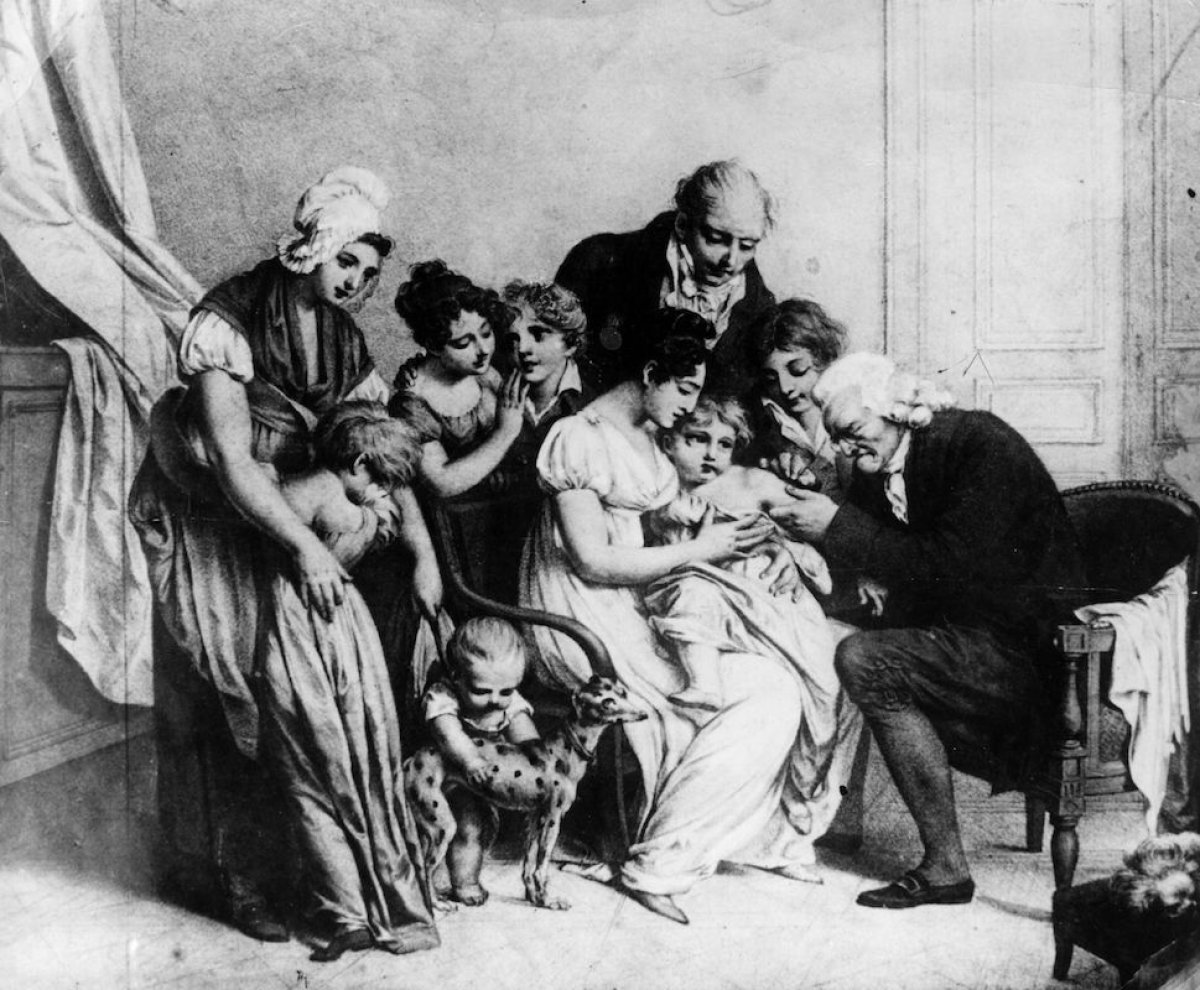
Social media is fueling vaccine scepticism
Anti-vaxxers were able to advocate before the internet— The U.K.-based Leicester Anti-vaccination League formed in 1869— but social media has made it easier to spread erroneous claims and hard to debunk them . "Most online media don't benefit from the quality control of journalists and editors that shapes the content of traditional mass media," write researchers Marina Joubert and Francois van Schalkwyk. "Consequently, content is generated by experts and quacks alike, and opinion and facts become blurred. This makes it hard to judge if information is credible or not."
Without fact-checking, Facebook groups become echo chambers that amplify a single perspective, one often lacking rigorous scientific evidence.
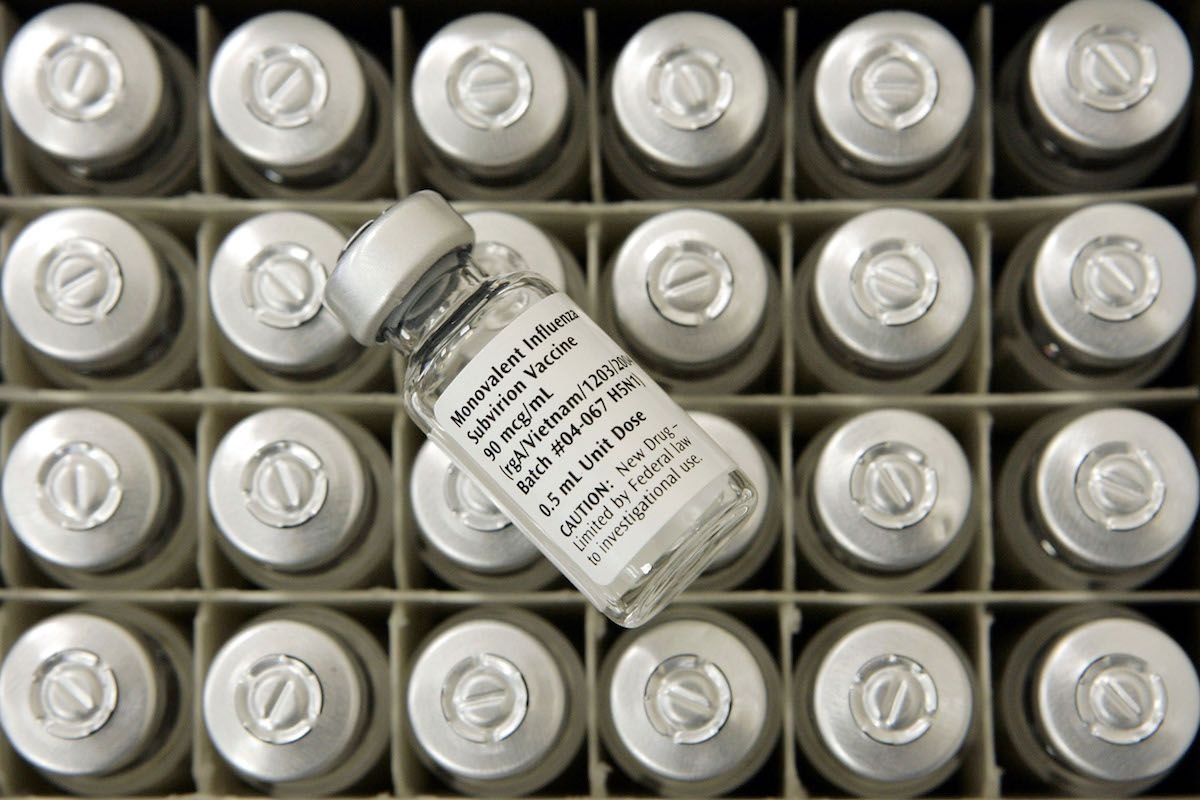
Past mistakes by the medical establishment
Of course these stories wouldn't spread if there wasn't already a some mistrust of the governments and medical institutions that administer vaccines: Between 1932 and 1972, hundreds of African-Americans were co-opted into the Tuskegee experiment, their syphilis left untreated even after penicillin was proven an effective treatment in the 1940s. In fact, the men In fact, none of the men were ever told that they had the disease or that there was treatment available. This led to new infections, deaths and children born with congenital syphilis. It also sparked a lasting mistrust of the American medical establishment by people of color.
Around the time Americans were receiving SV40-infected polio vaccines, pregnant women in Europe and Australia were being prescribed the anti-morning sickness drug Thalidomide, which ended up causing extreme deformation and death in thousands of babies.
The fact that modern medicine still doesn't have all the answers may also be fuelling anti-vax sentiment. A 2017 study published in Information, Communication & Society points out that "much of the appeal of anti-vaccination sites is in the genuine pain of those touched by childhood illness and death, and the lack of a seemingly adequate medical explanation. In this instance, anti-vaccination reasoning fills this 'void' by placating parents who feel abandoned or dismissed by the medical community."
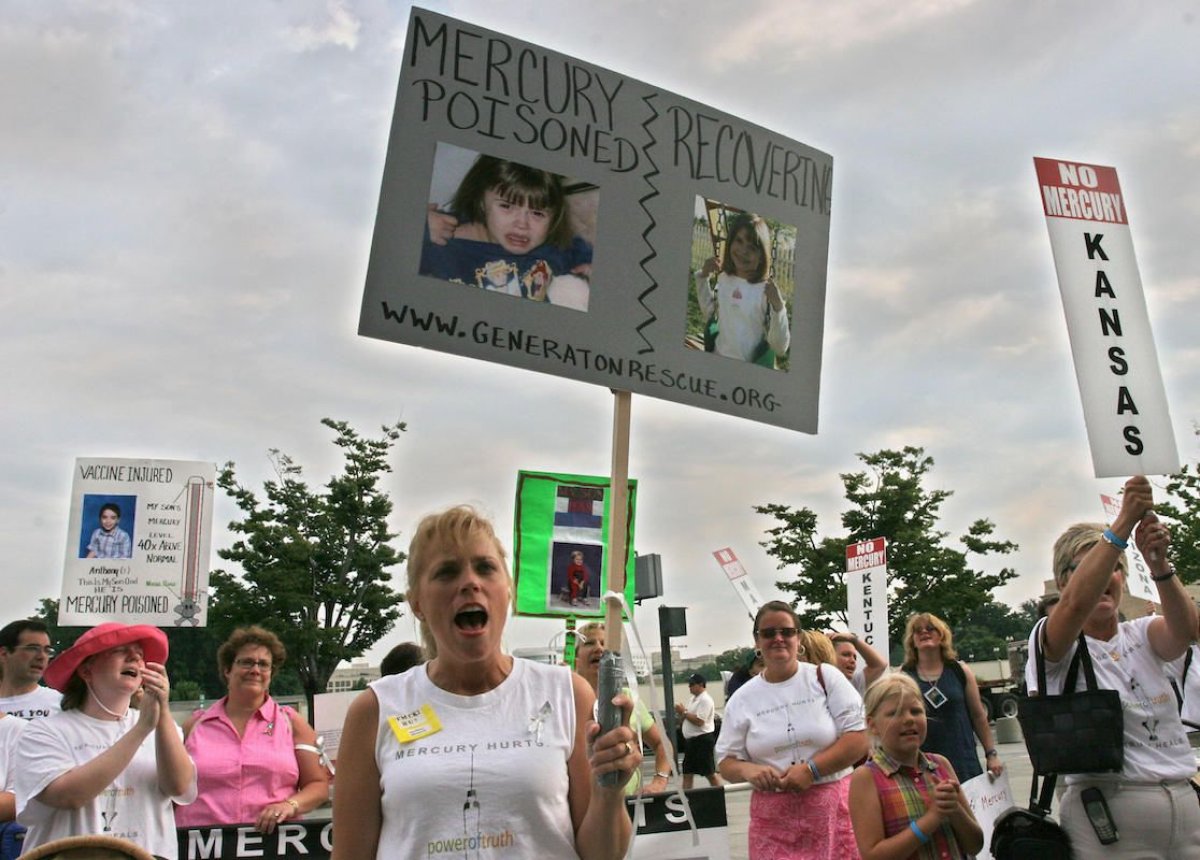
Many vaccine skeptics are also mistrustful of the pharmaceutical company, believing Big Pharma is shilling unnecessary (and potentially dangerous) vaccines just to make money. When pharmaceutical companies are sued for failing to report information about the safety of their drugs, it furthers that distrust.
SV40: Vaccines and Cancer
Further bolstering the arguments of vaccine skeptics are dubious "news" stories alleging to have proof of vaccine toxicity: In 2015, the website Vaccines.news ran a story with the headline: "CDC admits 98 million Americans were given cancer virus via the polio shot."
The story was a wild extrapolation of real events: In the 1950s and early '60s, Americans were accidentally inoculated with polio vaccines containing SV40, a simian virus present in monkey kidney cells used to grow the vaccine. Despite the fact that SV40 has not been proven to cause cancer, and that SV40 has not been present in any vaccine since 1963, some people remained unconvinced. It's often a kernel of truth like this, wrapped in a lot of misinformation, which can make anti-vax fake news so complicated to unravel. This misleading story, from Vaccines.news and other similar websites, has been shared thousands of times on Facebook.
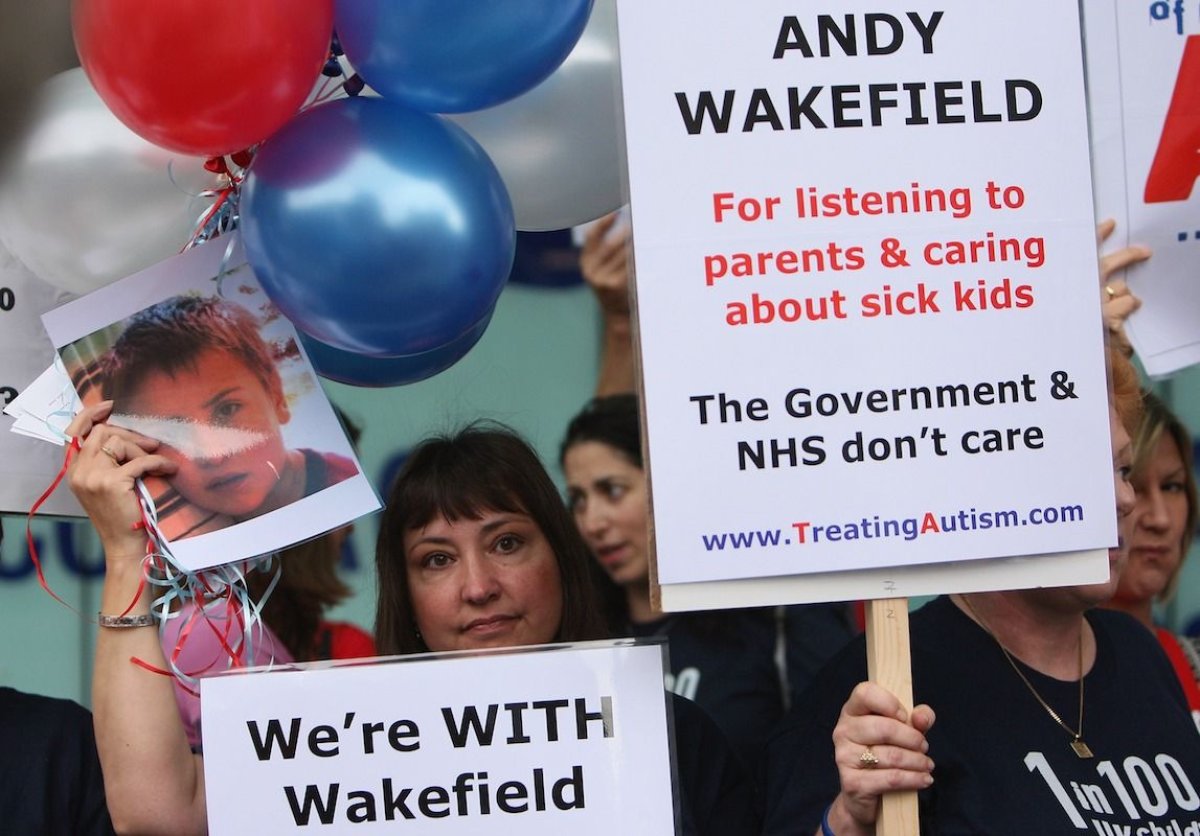
The Lancet Study: Vaccines and Autism
A single study has contributed greatly to anti-vax beliefs: In 1998, British gastroenterologist Andrew Wakefield published a study in The Lancet that linked the measles, mumps and rubella (MMR) vaccine to autism and bowel disease.
It was later revealed that Wakefield's study had a sample size of just 12 children and contained many inaccuracies. (It was also funded by parents suing vaccine companies.) It took a dozen years for The Lancet to retract the paper—and for Wakefield to have his medical license revoked—but by that time the bogus story had made an indelible impact. Subsequent studies have rigorously examined far larger sample groups and found no link between vaccines and autism, but Wakefield's theory is still touted by anti-vaxxers. In 2008 Jenny McCarthy made headlines claiming her son developed autism following vaccinations—a position she's since distanced herself from. Even President Trump has helped fuel this particular piece of fake news: "You take this little beautiful baby and you pump—I mean, it looks like just it's meant for a horse and not for a child," he said of the vaccine schedule in 2015. "… Just the other day, two years old, a beautiful child, went to have the vaccine and came back and a week later got a tremendous fever, got very, very sick, now is autistic."
This misinformation is particularly hard to dispel, perhaps, because the actual causes of autism remains unknown.
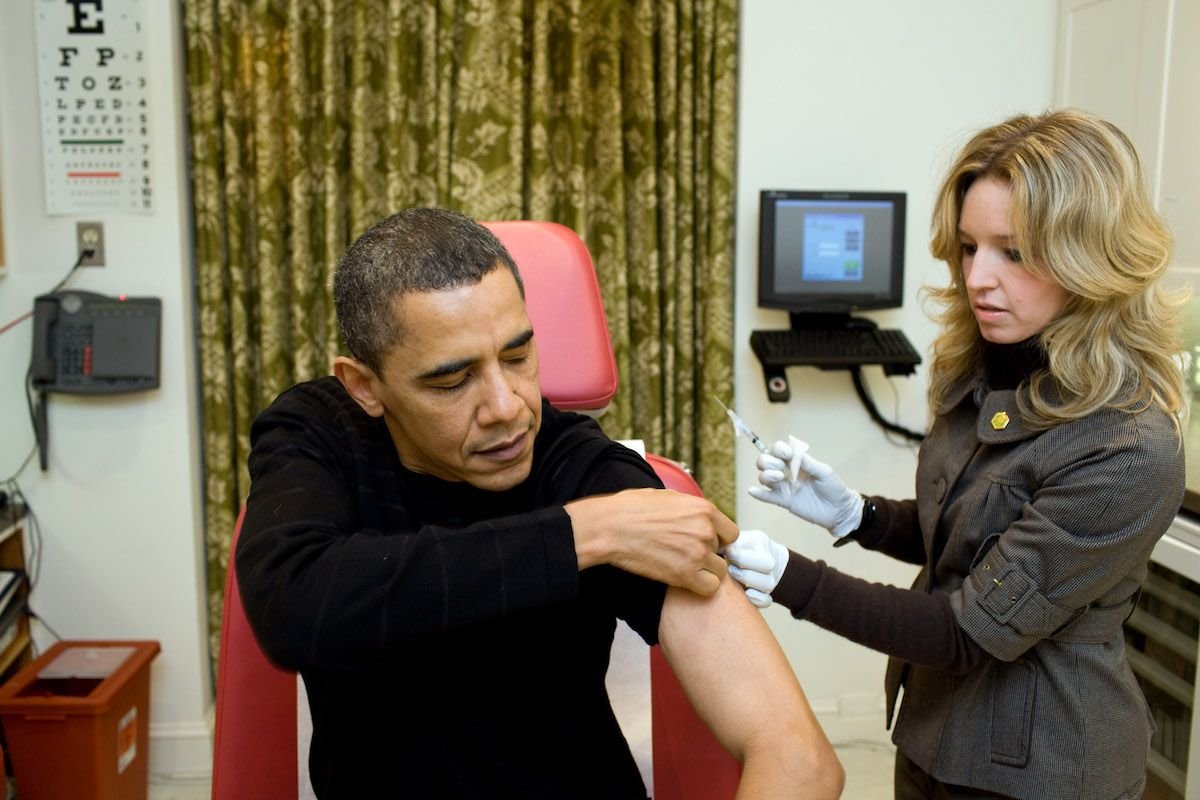
Russian intervention
Experts say social media bots and Russian trolls are fueling distrust of vaccines to further social discord in the West. "It's a known strategy to infiltrate an interest group around a particular issue or topic and then slowly try to introduce new things into that discourse," David Broniatowski, an engineering professor at George Washington University, told Radio Free Europe. "A significant portion of the online discourse about vaccines may be generated by malicious actors with a range of hidden agendas."
Researchers at Johns Hopkins University studied thousands of tweets sent between 2014 and 2017, and found that the same troll accounts that tried to influence the presidential election were also tweeting about vaccination. They were actually tweeting both for and against, to establish "false equivalency" and the perception that the U.S. is divided on the issue. In reality 87 percent of Americans believe vaccines were safe and effective. "By playing both sides, they erode public trust in vaccination, exposing us all to the risk of infectious diseases," said lead researcher Mark Dredze.
According to the BBC, the study also found that malware Twitter bots were much more likely to share anti-vaccination messages than typical Twitter users, using them as "bait" to get people to click on links to unsolicited commercial content or virus downloads.
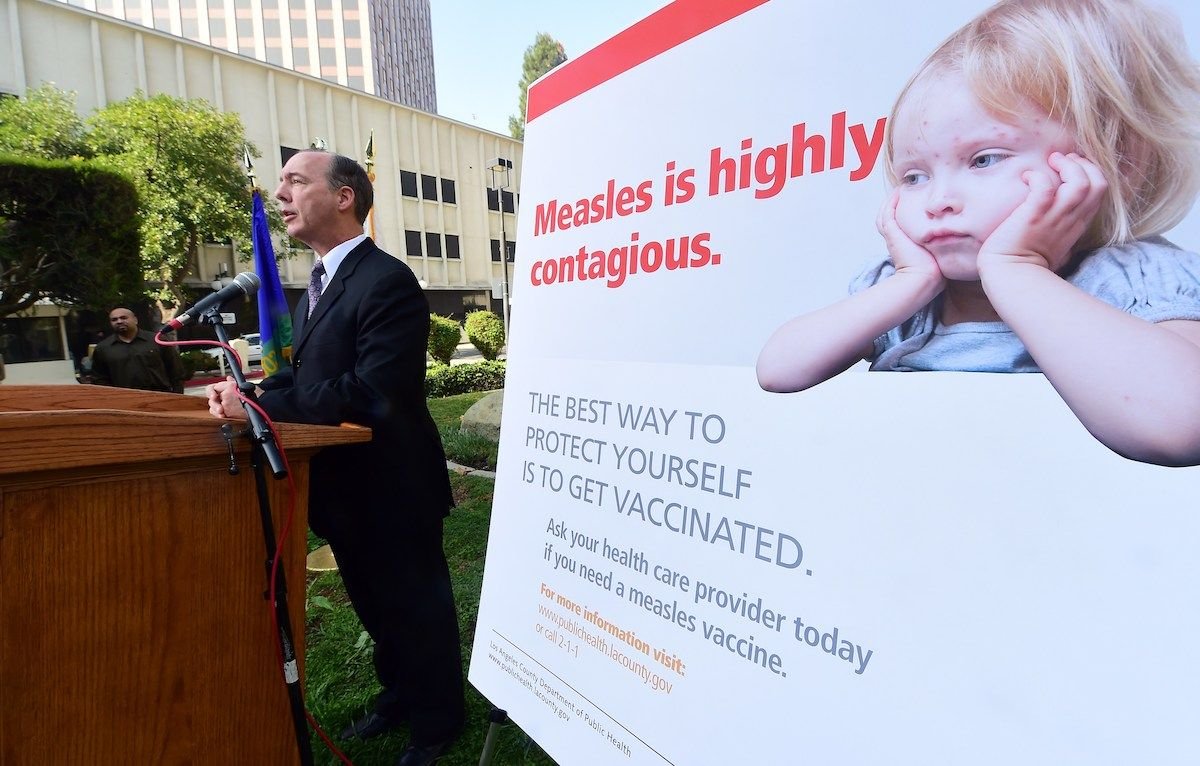
Complacency
Although anti-vax parents have an skeptical view of the medical establishment, they are by no means social outliers: Totally unvaccinated children tend to come from white middle-class families with a married, college-educated mother. Rates of vaccine-exempt kids are far higher in wealthier areas like Orange County, California, than they are in poorer regions nearby.
Vaccination relies on "herd immunity," or the idea that if most people are immunized even those who are not will be protected. And because disease outbreaks are rarer in affluent communities, these parents feel they can rely on herd immunity to protect their child—The thought being, "Let someone else risk their child's health."
But if enough parents don't vaccinate, then the system breaks down and outbreaks arise, even in affluent spaces: A 2015 measles outbreak at Disneyland infected 147 people. A second outbreak two years later hit another 125 people at the park, and cost the public health system $2.3 million.
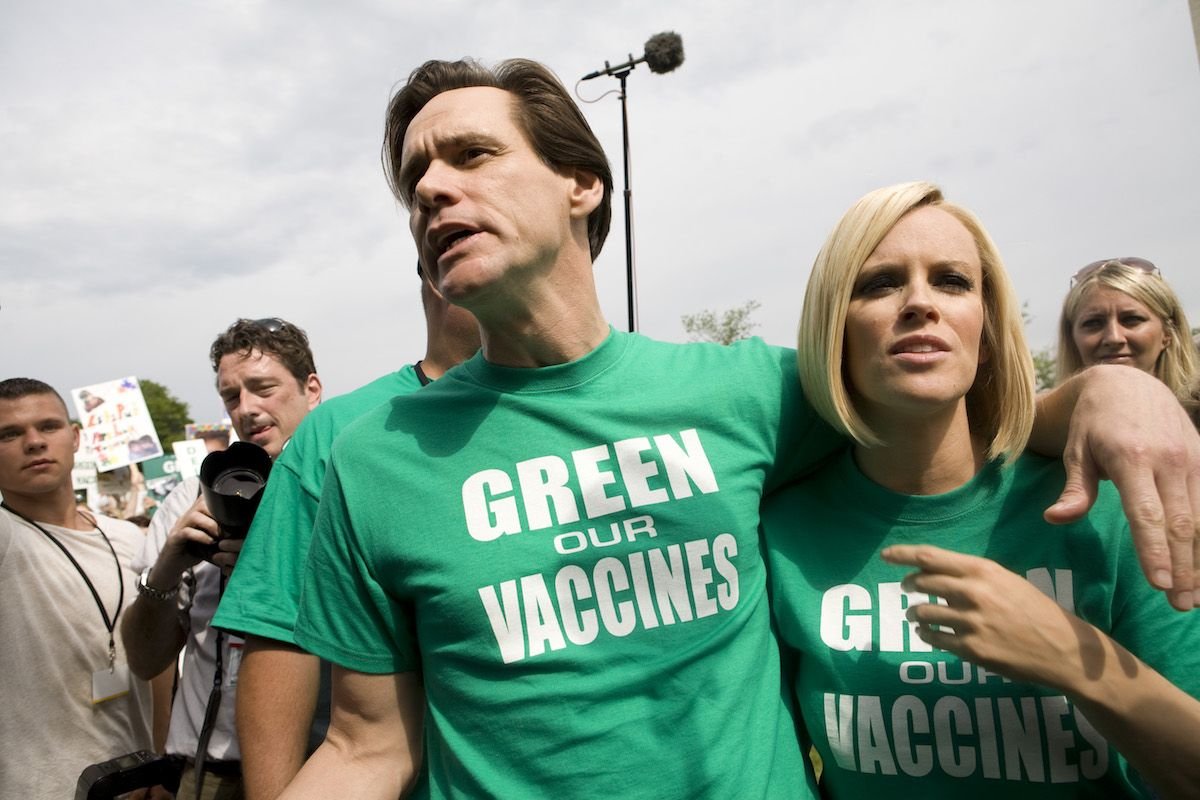
The allure of "natural" health
Our society is increasingly preoccupied with organic foods and medicine—certain that natural substances are all we need to remain healthy and than "chemicals" are the problem. In 2018, Gwyneth Paltrow's lifestyle company, Goop, invited "holistic health psychiatrist" Kelly Brogan to speak at a conference—Brogan links vaccines and autism, and insists flu shots don't work. Holly Blumhardt, a California mother of three unvaccinated children, told the L.A. Times her family believes in staying healthy "from the inside out." She takes vitamins, avoids GMOs and sees to a chiropractor—and receives a belief exemption from innocculating her kids.
An entire alternative medical establishment has emerged to serve anti-vaccine parents fixated on being "natural": One former naturopathic doctor told The Atlantic she met a naturopath who suggested elderberry syrup could substitute for the flu vaccine. Naturopaths undergo far less rigorous scientific training than conventional doctors, yet 20 states give them licenses to practice, legitimizing science-skeptical philosophies.
Biased assimilation
Biased assimilation is the phenomenon when all new input is viewed through the lens of what is already believed, making it harder to absorb information that may radically alter your preconceived notions.
Accurate information that contradicts assumptions can actually make people double-down on their beliefs: In a 2014 American Academy of Pediatrics study, more than 1,700 vaccine-skeptic parents were given ample research disproving any link between autism and the MMR vaccine. But while the parents reported their misperceptions about vaccines and autism were reduced, they were even less likely to vaccinate their children than before. The evidence, which included emotive images of sick children, reinforced the overall vague association between vaccines and sickness.
Another study that year, this time focussed on the flu vaccine, showed similar results—people who already had concerns about vaccination were less likely to get a flu shot after reviewing, and even accepting, scientific evidence that directly addressed their concerns. Pro-vaccine messaging may need to focus more on the positives of vaccination—that it protects people from illness—rather than countering misinformation.
The Dunning-Kruger effect
Why do such false beliefs take root in the first place? Many people are unable to accurately appraise their own understanding of a topic, a condition known as the Dunning-Kruger effect. A 2017 study found that 62 percent of people who performed poorly on a test about autism believed they knew as much or more about the causes of autism than doctors or scientists. This overconfidence could explain why vaccine sceptics are so certain they understand more about vaccines than experts.
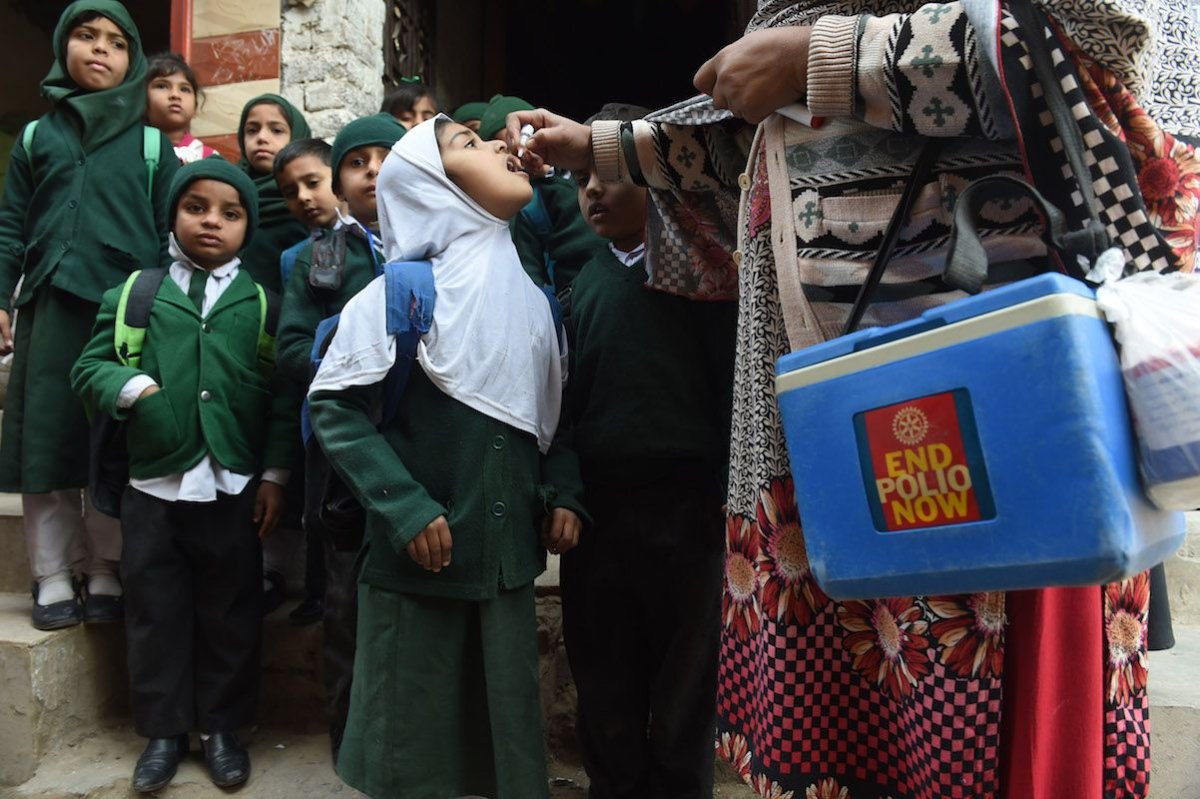
Vaccines aren't perfect
Some vaccinations can cause some mild side effects, like a low-grade fever or soreness at the injection site. In very rare cases, severe allergic reactions have been recorded. And being innoculated also doesn't guarantee 100 percent lifelong immunity: The flu vaccine, for example, works differently depending on the type of flu virus it's fighting. And it might not always protect you from the flu: According to the CDC, a flu shot, reduces the risk of flu illness by between 40 percent and 60 percent in the overall population, which means some people who get the jab will still get sick. Although that doesn't sound great, it's not to be sniffed at: The CDC says the flu vaccine prevented 5.3 million influenza illnesses in the 2016-17 flu season alone.
Even if a vaccine doesn't prevent someone from getting the flu or other illness, studies have shown the disease is generally milder than in people who were unvaccinated.
The Bottom Line
Anti-vaxxers are swept up in a perfect storm of social, historical and psychological factors that have led them to distrust vaccines. But there's still hope. "Hesitancy is a spectrum," epidemiologist Avnika Amin told Newsweek previously. "Most people aren't going to be 100 percent against all vaccines and refuse to engage in conversations. That's one very small portion of the spectrum. Taking a moment and realizing that everyone is on the same side, we all want what is best for the child—I think that is the best place to start."
Uncommon Knowledge
Newsweek is committed to challenging conventional wisdom and finding connections in the search for common ground.
Newsweek is committed to challenging conventional wisdom and finding connections in the search for common ground.
About the writer
To read how Newsweek uses AI as a newsroom tool, Click here.








